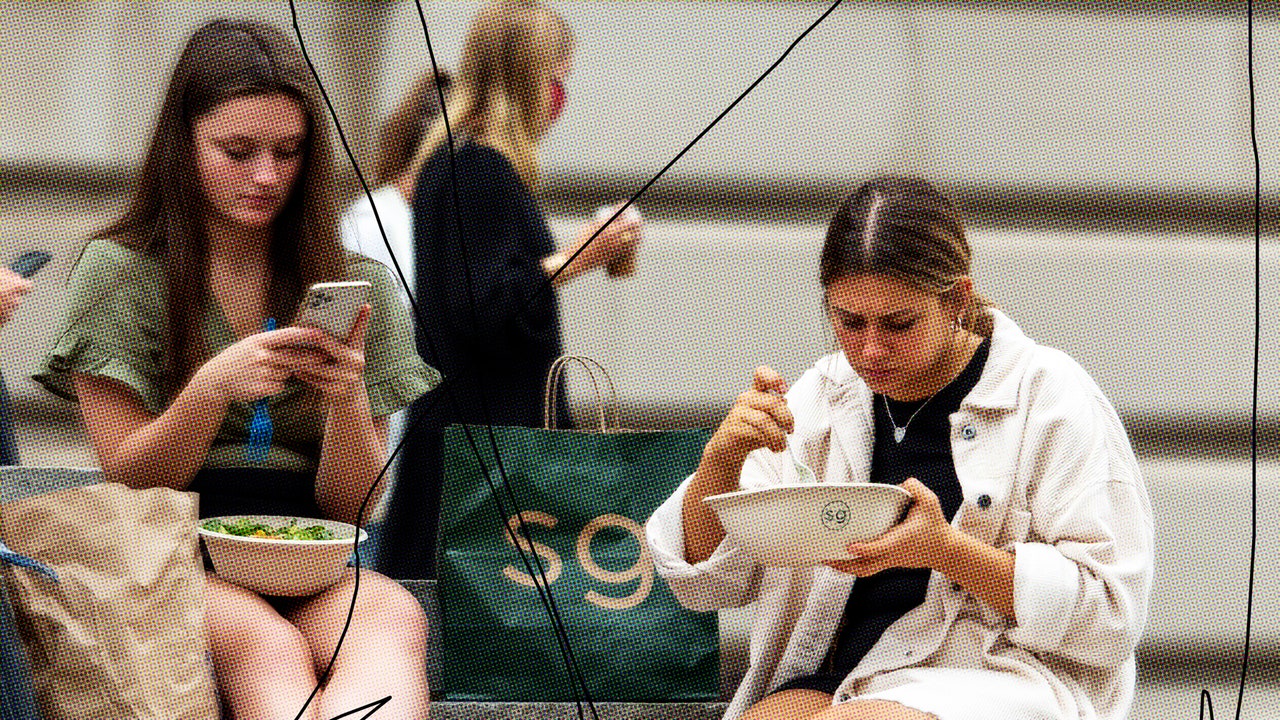This is an edition of the newsletter Pulling Weeds With Chris Black, in which the columnist weighs in on hot topics in culture. Sign up here to get it in your inbox every Thursday.
Last week, I spent a whirlwind few days in the middle of our fine country. I awoke one morning at home in New York at 4:30 a.m. to catch a flight to Chicago for a J.Crew event. After I landed, I took an Uber from O’Hare to the Waldorf Astoria. In the car, I ordered a sensible Sweetgreen salad to be delivered to my room. Later that afternoon, after doing some work, I strolled down the street to get a cold brew from La Colombe before going to work out at Equinox.
The next day, I got up again at 4:30 a.m. to fly to Austin for South by Southwest, the annual music conference. After I spoke on a panel with my friends from the publication Byline, I walked down the street to a Sweetgreen and ate a salad. Later that afternoon, after doing some work, I had an almond milk cortado from Alfred Coffee in my hotel lobby before going to work out at Equinox.
On the trek back to New York City, I ran into Eli Keszler, a well-traveled musician friend, in the Delta Sky Club at Austin-Bergstrom International Airport, and we started talking about how every city now seems the same—or does when you rely on the same chains for your food, caffeine, and exercise. Keszler called the salads and coffees we get from these go-tos our “slightly above average” comforts, and he nailed it. Many of my peers share this blandly globalized lifestyle, and my patterns last week reminded me that I am part of the problem. I love convenience and a Shoomami with spicy cashew dressing hits the spot. But I also love finding something new, getting a recommendation from a friend, or even asking the concierge for help.
Not that long ago, when traveling, you were forced out of your hotel to explore a city in order to find a decent place for lunch or coffee. But now, thanks to a combination of technology, venture capital, and the pandemic, we’ve been granted our wish to have everything brought to us—to live a frictionless existence free of human contact. In his recent book, Filterworld: How Algorithms Flattened Culture, Kyle Chayka argues that algorithms have ushered in a new age of homogeneity in real life, with, for example, the coffee shops that cater to millennials all sharing distinctly minimalist interior design. Maybe that’s true. Or maybe I’m just “part of a relatively small demographic cohort” suffering from “anxiety about taste,” as Max Read wrote in his response to the book. Either way, take a walk through the South Congress neighborhood in Austin and you will find a Soho House, Sweetgreen, Equinox, Two Hands, and Sunlife Organics—the convenient and above-average chains that I patronize when I’m at home in New York City and Los Angeles, as well as numerous other cities when I have reason to visit them.
Unlike, say, McDonald’s, these businesses represent a certain kind of lifestyle: that of the millennial yuppie striver, who balances their taste for amenities with a desire to optimize everything, from food to socializing, for health and efficiency. As much as they may have colonized the coastal capitals, these franchises can never dominate New York and LA, where competition for cultural influence is legion. But Austin, once known for its weird charm and sleepy Texas attitude, seems in danger of being swallowed up, mainly because it’s flooded not just with Sweetgreen salads, but also the transplanted tech bros who eat them (and drive Rivians and rock flat-brim trucker hats). The lifestyle isn’t limited to the sans-serif-marked storefronts—it’s everywhere you look.
Hope is not lost; there are only so many cities that Elon Musk’s acolytes can follow him to. I recently visited downtown Charleston, South Carolina, which, despite the drunken bachelorette parties that course through it every weekend, remains small and charming. I love Charleston for its fantastic restaurants, proximity to the beach, and great independent hotels. I go there by choice, whereas I only visit Austin when I have to. Of course, we business travelers and tourists have a responsibility here. On your next trip, close Postmates and ask a friend where you should get lunch. That worked for decades, and I am sure it still does.

